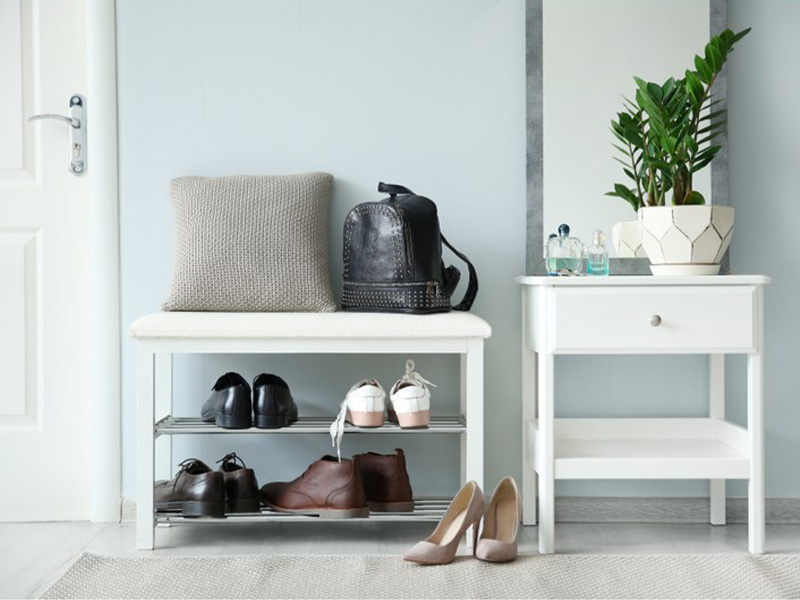
The KonMari method
January 23, 2020
At the age of 5, Marie Kondo from Japan started becoming interested in various storage techniques, testing them one after the other. Over time her interest has grown, and her personal technique has been gradually taking shape. At the age of 19, while she was still a student, she opened her storage consultancy business. Her promise? To get rid of clutter once and for all. As the author of books for both children and adults and the star of a Netflix series that focuses on her storage method, her advice is drawing more and more followers.
Imagine your ideal space
Step one: mentally visualize your ideal home. What ambiance are you aiming for? How much stuff do you want? What about colors and lighting? You need to project yourself into a universe where you’ll feel good. You may not be able to materialize it in its entirety, but you can do your best to get closer to what you want.
Once you have decided on your ideal, choose a space in your home that works as an area where you can evaluate your possessions. This is where you will implement the second step: sorting. Choose a room where you’ll have all the privacy you need and where you won’t be disturbed. A quiet room will make it easier to focus on the demanding task ahead.
Sort and categorize
Start with clothing. Gather all of your clothing items into one place, don’t leave anything out. Make three piles: one for items you want to keep, one for donations and one to throw away. Don't make the common mistake of keeping clothes “just in case” for a situation that will likely never happen. In order for an item to go into the “keep” pile, you have to ask yourself if wearing this item makes you happy. If you do not immediately answer “yes”, the item belongs in one the other two piles.
Once you have finished sorting, group the clothing by category, not by season. Pants, tops, sweaters, dresses, skirts, etc., should all be separate. Next comes the storage step. Have boxes ready, with or without lids, where you can store your clothing. Through her various attempts, Marie Kondo realized that when clothes are folded correctly, you can store more items that you could if they were kept on hangers. She recommends folding your items into a rectangle (tutorials available online) and storing them in your boxes. Take care to store items on their sides as opposed to stacking them! This way, when you grab each box you can see all of your pants at once, as opposed to pants at the bottom of a stack that would certainly be forgotten with traditional folding methods.
The same principle applies to other objects: do they fit with your ideal space? Do they bring you joy? Do you have a true emotional attachment to these objects? If the answer to these three questions isn’t yes then you definitely need to part with the items. The KonMari method recommends that you start by sorting books, papers and decorative items, then finish with the items that have sentimental value. Once the sorting and storage is complete, Marie Kondo promises a space full of good vibes that will have a positive effect on your overall wellbeing.
A family activity
Are you a parent? If so, your home can quickly become a shamble. According to Marie Kondo, even small children (from 3 years old) should be taking part in this activity. Even if they are too young to master the rectangle folding technique, they can still express their attachment to objects that belong to them and therefore participate in sorting. Your children's expectations are not the same as yours, nor are the objects that bring them happiness. Remember that sorting is learned, just like any technique, and learning anything takes time and needs to be adapted to each child’s individual abilities.
Children love to imitate their parents. As they watch you apply this method, there is a good chance that your toddler will be encouraged to do the same without you having to force them to do so. How your child understands possession may also change. By teaching them to keep only the essentials and avoid recurring purchases, they will learn to appreciate what they have for its true value. Choosing to provide your child with activities as opposed to material gifts can also be beneficial on several levels: you won’t clutter your home and you’ll also create lasting memories.
The KonMari method is addictive and it may take some time to apply it, but one thing is for certain: while tidying up does allow you to declutter your home, above all it enables you to declutter your mind. A solution that brings happiness and is free of charge should not be overlooked!